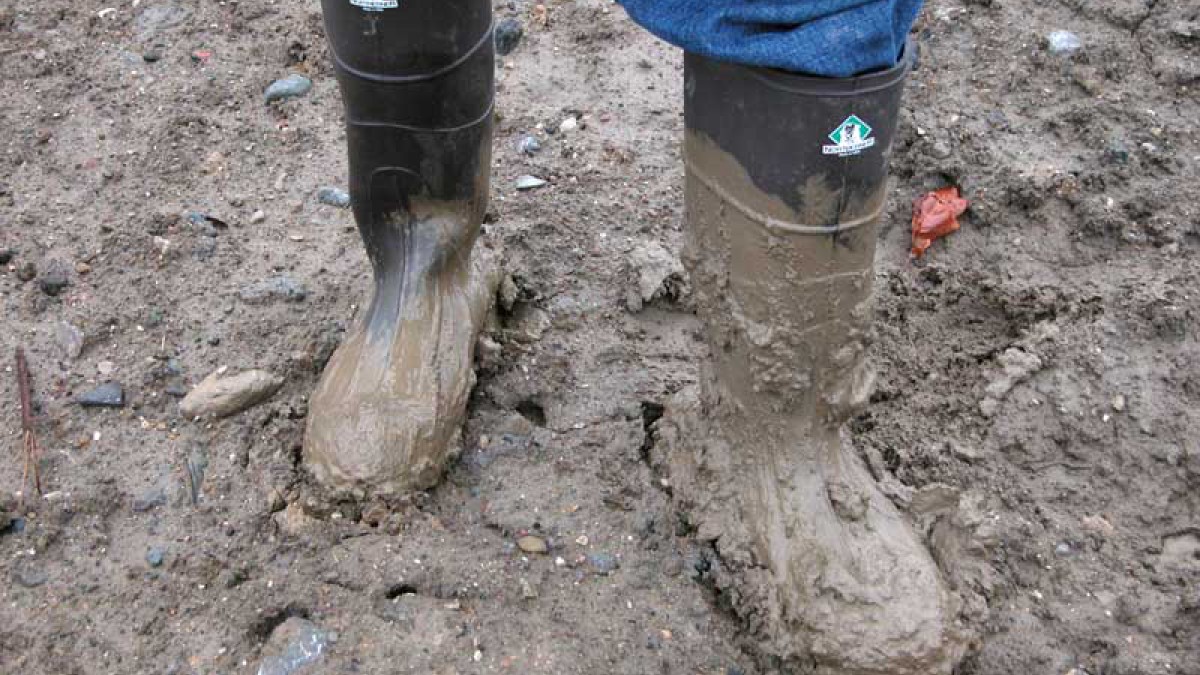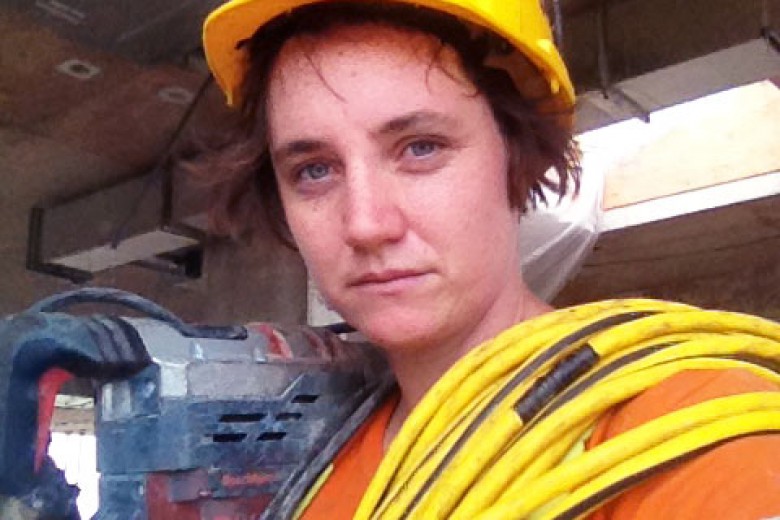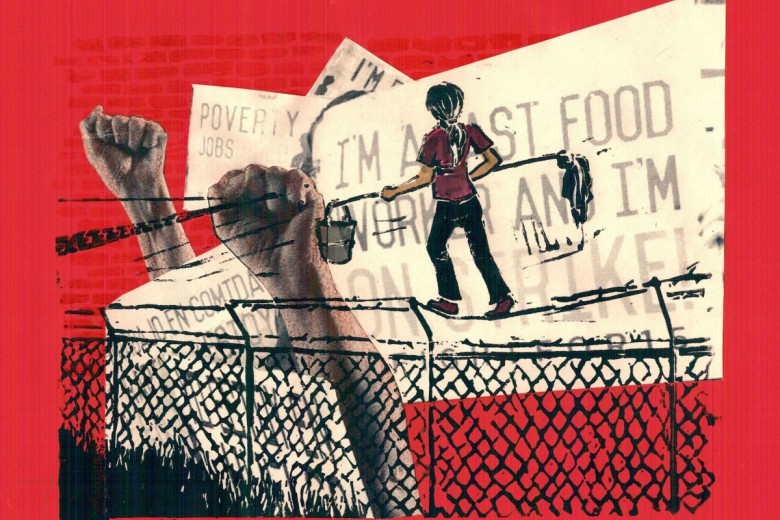I am digging out a foundation by hand, laboriously filling buckets with sand/dirt/rocks and hauling them out of a pit between two houses. As we slowly tear out pieces of the cement wall I realize that the cement wall of the basement is barely holding together and can be demolished easily with a hammer.
You start to go a bit crazy working in a confined space like that, you can almost feel the walls closing in on you. The fact that most of the houses in the area were made with cement from the same bad quarry and have either collapsed or been re-built since the 1920s does not help. Just before I started this job a guy in the same area – an unnamed 19-year-old worker according to local media – died after a hole collapsed on him, doing the same job I’m doing. As I work at this hard manual labour, two questions are constantly on my mind. Am I going to die? And, am I going to get paid?
But it’s not just exploitation at work I have to keep in mind. I have to keep in mind the cost of living, my intolerable housing situation, the lack of rental options in a city with one per cent vacancy rates, the impossibility of child-care for my toddler. The cost of buying work pants, boots, tools and gloves – the cement I’m mixing is corrosive so it’s destroying all my clothes and my gloves are only lasting a week. I’m trying not to think about what it’s doing to my skin. I need a car to find and keep this kind of work, but a car raises the stakes enormously by increasing my cost of living.
This gig, messed up as it is in some ways, is critical to my survival and the fact that I have it is really helping me and I feel grateful to be employed despite the fact that I’m constantly worried about death and/or not being paid. Like many people in construction, I’m in this industry not purely by choice but because of a severe lack of other options that will pay me enough to scrape by in Toronto.
I’m comforted by the fact that I’ve seen an actual engineer come by and evaluate the under-pinning job. He’s made the boss I’m working with re-enforce the most rotten part of the foundation. The boss and his one permanent worker are actually teaching me how to use new tools in a safe fashion and I’m learning how to do carpentry assistant work as well as a bit about masonry. But the guy running the job is withholding pay for two weeks as if this is a major corporation rather than cash-job labour gig. He also seems to have badly underbid this job, underestimating the amount of re-enforcing that would need to happen. But he needs my semi-skilled labour as I have some experience in the kind of structural work needed to put up the jackposts and adjust them properly.
I figure as long as I continue working for him, I’ll continue to get paid, and once this job ends or I move on, I’m going to have some trouble collecting.
My other co-worker is an Irish migrant worker just arrived from a small town south of Dublin. He and his broke migrant worker friends are living in a hostel in Kensington Market, one that I’d assumed was filled with rich kid tourists. They own one pair of construction boots and one hammer that circulates among whoever happens to have work that day. Every day at work we talk about the calculus of how much danger is worth how much pay, and how stable are things, and how is this job going, and does it look there are any other jobs on the horizon. But the equation changes for both of us as we work. I gain more experience in using power tools, cutting wood and concrete blocks, mixing cement, and so I become more credible as a construction worker.
My strength is coming back and I re-gain a lot of my old construction skills that I’d tossed aside ten years ago to go to university. But also, winter is coming and with it seasonal unemployment, so maybe its not the best time to change jobs, and I’m a girl which puts me at a huge disadvantage in applying for construction jobs. But I want to be a skilled tradesperson eventually, or a least a multi-skilled contractor. The boss knows that as I get more skills and experience, working for him will look worse and worse to me, as cash residential repairs is pretty much the bottom of the barrel.
I don’t die. For me the job ends when I get a phone call offering me a way better gig, an actual apprenticeship in a trade where I will have actual pay stubs and a real job. My Irish migrant worker buddy also finds a more stable construction gig where the calculations of wage theft/death vs. type of work are more in his favour.
We both have our last week’s pay stolen.







